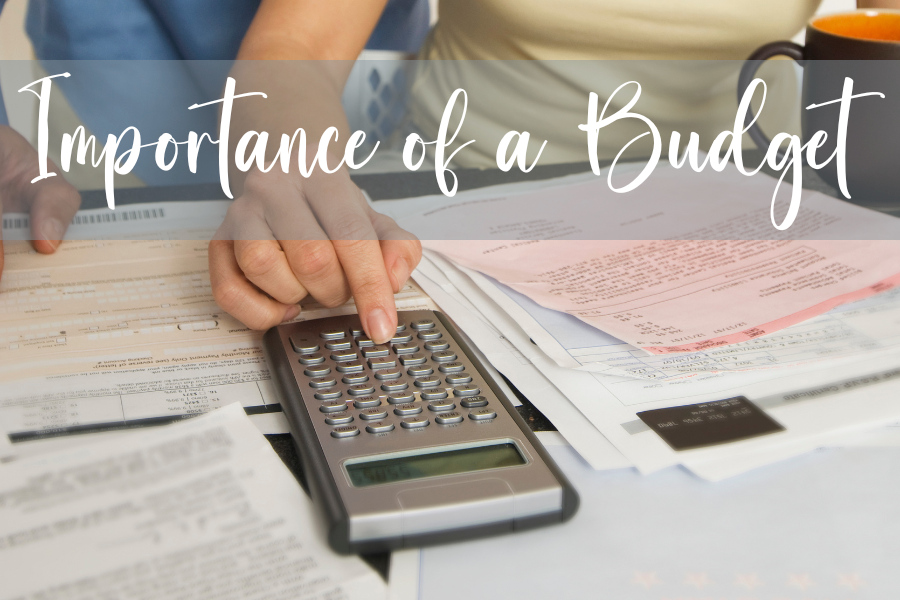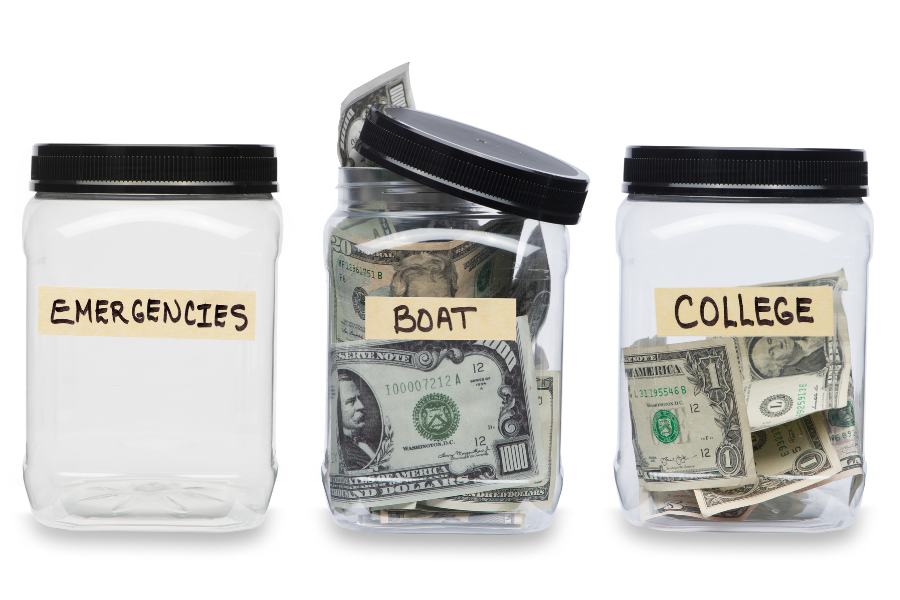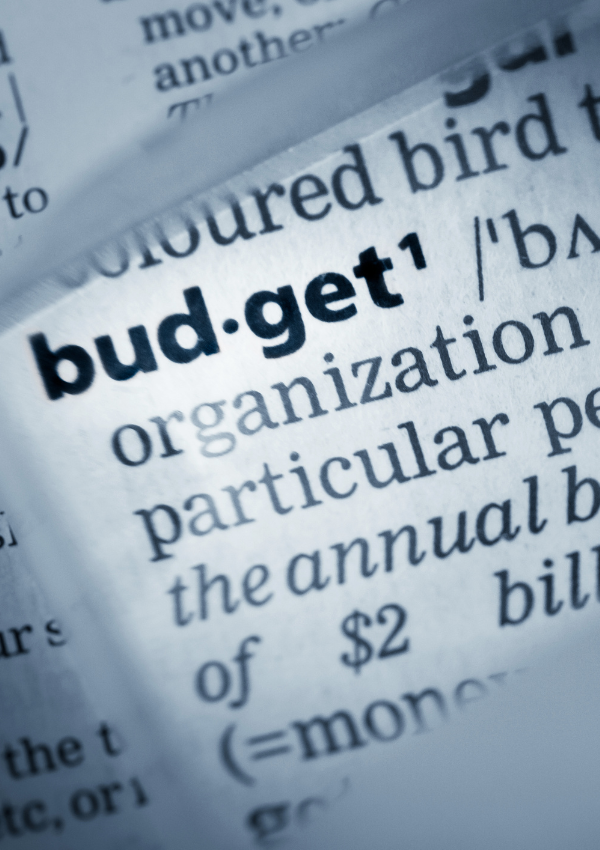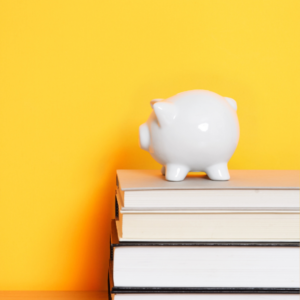This article may contain affiliate links. See our disclaimer for more information.

This article is all about the importance of a budget. When it comes to financial planning and personal finance management, having a budget is essential. A budget allows you to track your income and expenses, make informed spending decisions, and prioritize your financial goals. It is a powerful tool for managing your money and achieving long-term financial stability.
We will explore the importance of a budget and its role in financial planning and personal finance management and break down the basics of creating your own budget. Whether you are just starting or looking to refine your budgeting skills, this article will provide you with practical tips and strategies to become an effective budget manager.
Join me, as we delve into the world of budget management!
The Basics of Budgeting for Beginners

If you want to take control of your finances, creating a budget is a great first step. With a budget you can :
- Track your income and expenses
- Identify areas where you can cut back
- Save money.
If you’re new to budgeting, don’t worry – it’s easy to get started.
The first step I recommend you take if you are brand new to budgeting is to track your spending for a month. This will give you an idea of where your money is going and help you identify any areas where you can cut back. Next, you’ll want to create a list of all your income sources and expenses. Be sure to include everything – from rent or mortgage payments to groceries, transportation, entertainment, and more.
Once you have a clear picture of your income and expenses, you can start putting together your budget. Start by setting aside money for your essential expenses first – like rent or mortgage and groceries – and then allocate money for discretionary expenses like entertainment and eating out. Remember to also set aside some money for unexpected expenses or emergencies.
There are many budgeting tools and apps available that can make the process of creating and managing your budget easier. And don’t worry if your budget isn’t perfect at first – it takes time to adjust and find the right balance. With a little practice and discipline, you’ll be on your way to mastering budgeting for beginners.
For a deep dive in creating a budget planner check our article here.
Tips for Effective Budget Management

Part of the importance of a budget is the ability to manage your finances well. Budgeting is an important skill to develop if you really want to take control. Here are some tips to help you manage your budget efficiently:
- Track your expenses: Keeping track of your spending habits will help you identify areas where you can cut back and save more money.
- Make informed spending decisions: Before making any purchase, ask yourself if it’s really necessary and if it aligns with your financial goals.
- Develop healthy financial habits: Try to develop good habits like paying bills on time, avoiding unnecessary debt, and saving a portion of your income regularly.
- Set realistic goals: Identify your financial goals, whether it’s paying off debt, saving for a down payment on a house, or planning for retirement. Set realistic goals and develop a plan to achieve them.
- Adjust your budget: Your financial situation may change over time, so it’s essential to update your budget regularly to reflect those changes.
By following these tips and developing healthy financial habits, you can manage your budget more effectively and achieve your financial goals.
Identifying Your Budget Priorities

Creating a budget is a critical first step in advancing your financial goals, but setting budget priorities is equally essential and will help you achieve your financial aspirations. To identify your budget priorities, you need to consider your overall financial objectives. Whether you aim to pay off debt, save for a down payment on a house, or start a business, let your financial goals guide your budgeting decisions.
Begin by making a list of your short-term and long-term financial objectives. Be specific and realistic about the goals you want to achieve and the timeline for achieving them.
When I say be specific, I mean it. When we have a specific number and time line in mind, it helps give specific numbers that allow us to create actionable goals to achieve.
For example:
If I were to say I want to save $500 in 6 months, that’s an actionable goal. I can break that down to $83.33 per month or $19.23 per week.
If, on the other hand, I were to say, I would like to have some money saved by the end of the year, how am I going to achieve that? I don’t have a specific amount, and I don’t know how much to set aside, which makes me less likely to add it to my budget and also less likely to save.
Once you have identified your goals, you can align them with your budget and allocate your income accordingly.
It’s essential to prioritize your budget so that you focus on the most important goals and stay motivated. Consider which goals are most crucial to your financial well-being and allocate the necessary funds accordingly. By prioritizing your budget, you’re ensuring that you make smart financial choices and take steps towards achieving your financial goals.
As a recap, identifying your budget priorities is crucial for effective budgeting. It enables you to align your finances with your overall financial goals, allocate your income effectively, and make informed financial decisions. By understanding the importance of a budget, you’re setting yourself up for success and setting a solid foundation for your financial future.
Importance of Savings in Your Budget

As I discussed earlier, creating and managing a budget is essential for personal finance management. However, your budget will not be complete without a savings plan. Including savings in your budget is important to achieve long-term financial stability, build an emergency fund and make your financial goals.
Saving money is an act of discipline and requires careful planning and management. One way to go about it is by creating a savings goal and striving to achieve it monthly. Set yourself a target for how much you’d like to save, so you can track your progress. As we showed in the example above, setting these specific amounts will help you achieve your financial goals quicker.
Here are a few practical tips to help you save money effectively:
- Always aim to spend less than you earn, to leave room for savings.
- Look for ways to cut expenses in your budget, such as eating out less, canceling subscriptions you don’t need, or shopping smarter.
- Pay yourself first. Prioritize your savings by allocating a specific amount of your income towards saving before any other expenses.
Having a savings plan will give you peace of mind and prepare you for any future unforeseen events. Whether it’s sudden job loss, a medical emergency, or a car breakdown, having money saved up ensures you have a buffer against financial hardship.
Incorporating a savings plan into your budget is crucial for achieving personal finance goals, achieving financial stability, and preparing for emergencies. Stick to your budget, stay committed to your savings goals, and enjoy the long-term benefits of a well-managed budget and a healthy savings plan.
Achieving Financial Freedom through Budgeting

I cannot make any clearer the importance of a budget, especially as someone who is attempting to achieve financial freedom. I have bounced from one type of budget to another, and I firmly believe that budgeting is the key to achieving financial freedom. By establishing and sticking to a budget, you gain a clearer understanding of your financial situation and can take control of your finances. My finances have never done so well as they did when I’ve been budgeting and every time I step away, my financial picture falls apart.
Effective budgeting enables you to reduce debt, increase your savings, and make informed financial decisions. You’ll be able to identify areas of unnecessary spending and reallocate funds towards your financial goals. By tracking your expenses, you’ll be more mindful of your spending habits and can make adjustments as needed.
With these, budgeting creates a pathway towards financial independence. With a solid budget in place, you’ll be able to plan for the future and make lifestyle choices that align with your financial goals. Whether it’s saving for a down payment on a home, investing in your retirement, or pursuing your dream career, a budget provides the structure necessary to make it happen.
Overall, budgeting is a powerful tool for achieving financial freedom. By incorporating budget management into your financial planning, you’ll be able to take control of your money and build a solid foundation for a brighter financial future.
Budgeting for Long-Term Financial Stability

Part of the importance of a budget is that it plays an essential role in ensuring long-term financial stability. By creating a budget and sticking to it, you can gain control over your finances, which allows you to plan for your future.
When it comes to long-term financial goals, such as retirement, saving early and regularly is key. By incorporating these savings into your budget, you can ensure you’re building towards these goals with each paycheck.
It’s also important to plan for emergencies. Having an emergency fund can help protect you in times of unexpected expenses or loss of income. By including a budget line item for emergency savings, you can have peace of mind knowing you’re prepared for the unexpected.
Effective budgeting also involves aligning your spending with your long-term financial goals. By focusing on what’s important to you and prioritizing your spending, you can ensure that your money is being used in the way that matters most to you.
Ultimately, budgeting is about creating a strong foundation for your financial future. By consistently monitoring and adjusting your budget as needed, you can build and maintain financial stability for years to come.
The Role of Budgeting in Achieving Personal Goals

When people think about budgeting, they often associate it with managing money. However, budgeting can also be an effective tool for achieving personal goals. By creating a budget that aligns with your financial goals, you can take control of your spending and make informed decisions that will help you pursue your aspirations.
Whether you’re saving up to buy a new home, starting a business, or planning to travel the world, budgeting can help you get there. By prioritizing your expenses and allocating your income towards these goals, you can ensure that you have the resources to pursue your dreams while also maintaining financial stability.
It’s important to understand that budgeting is not a one-size-fits-all solution. Everyone’s financial situation and goals are different, so it’s essential to tailor your budgeting approach to your specific needs. As an example, if you’re saving up for a down payment on a house, you may need to adjust your budget to make room for additional savings contributions.
Ultimately, budgeting can be a powerful tool for achieving your personal goals. By taking control of your finances and prioritizing your spending, you can create a pathway towards the life you envision for yourself.
Overcoming Common Budgeting Challenges

Managing a budget can be challenging, especially when unexpected expenses arise or irregular income streams are involved. However, it is important to address these common obstacles to stay on track with your finances. Here are some practical solutions to manage your budget:
- Create an emergency fund to cover unexpected expenses
- Track your spending habits to identify areas where you can cut back
- If you have irregular income, create a flexible budget and adjust it accordingly
- Make sure you are setting achievable financial goals and prioritize them accordingly
- Consider using budgeting tools or apps to streamline your budget management
By implementing these strategies and staying committed to your budget plan, you can overcome common budgeting challenges and achieve financial stability.
Continuous Improvement: Refining Your Budgeting Skills

Now that we’re aware of the importance of a budget, it’s time to learn how to keep on track. As I’ve mentioned before, budgeting is a journey, not a destination. It’s essential to continually refine your budgeting skills and make adjustments as needed. Here are some tips:
- Regularly review your budget to ensure it aligns with your financial goals
- Track your expenses and adjust spending habits accordingly
- Reassess your income and allocate funds accordingly
- Explore new strategies to save money and increase income
By continuously refining your budgeting skills, you’ll be better equipped to handle financial challenges and reach your goals. As I said earlier, I’ve done several different budgeting methods. Different ways to budget are reflected in the different points I was at in my life. As things changed for me, so did my budget. Remember, the key to successful budget management is to stay motivated, adaptable, and focused on your long-term objectives.
Conclusion

As I conclude this article, I cannot stress enough the importance of a budget for anyone looking to achieve financial stability and freedom. By employing the budgeting tips and strategies outlined in this article, you will be on the right path to taking control of your finances.
Remember that budget management is a continuous process of improvement. As you work towards your financial goals, always be open to refining your budgeting skills and adapting to changing circumstances. Set meaningful financial goals and stay committed to achieving them.
With proper budgeting, you can establish a solid foundation for your financial future and pave the way for a brighter tomorrow. Start your budgeting journey today and watch your finances transform.
Thank you for reading this article on the importance of a budget. I hope you found it informative and helpful.






[…] For more budgeting help check our article: Understanding the Importance of a Budget […]